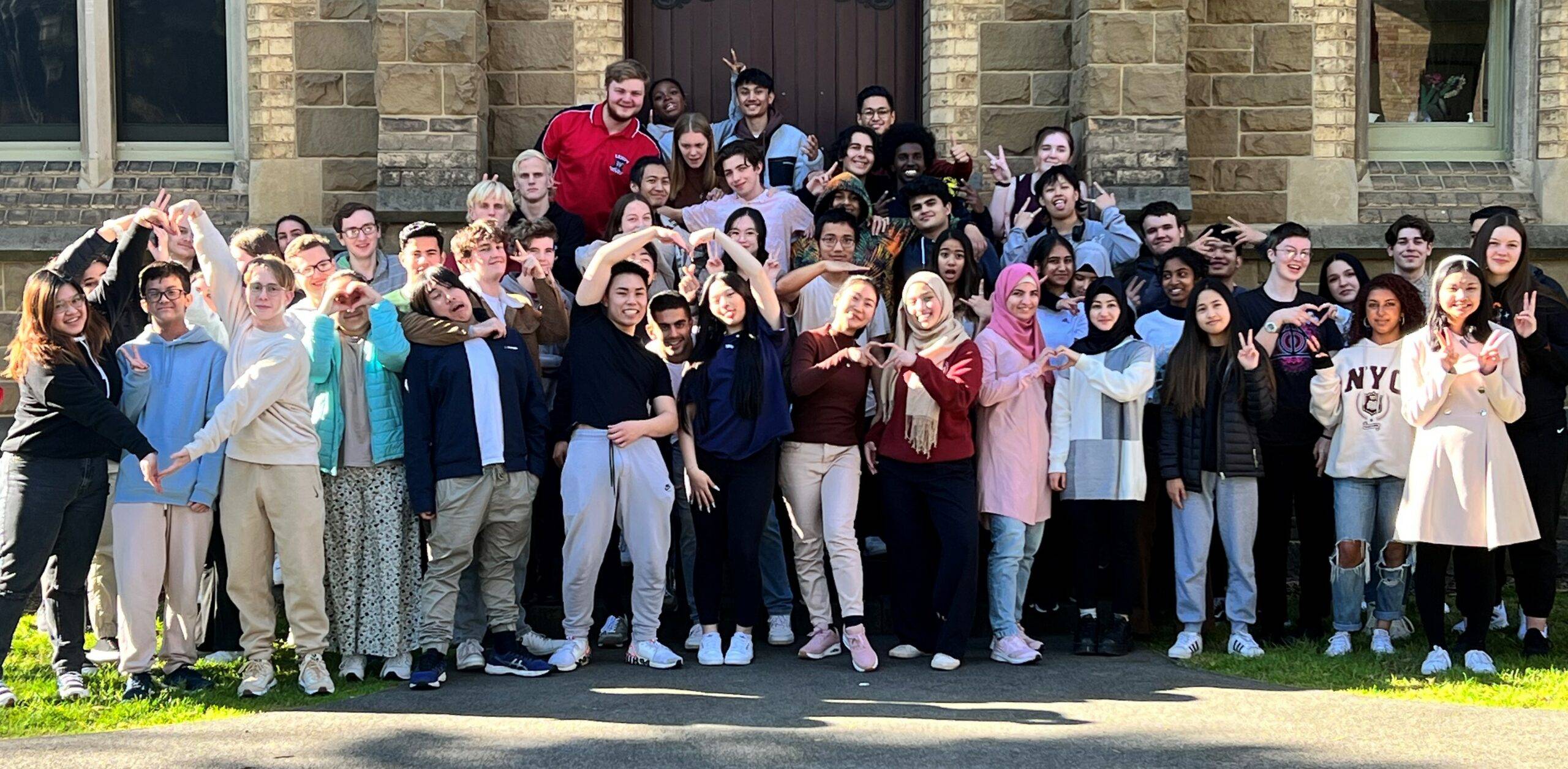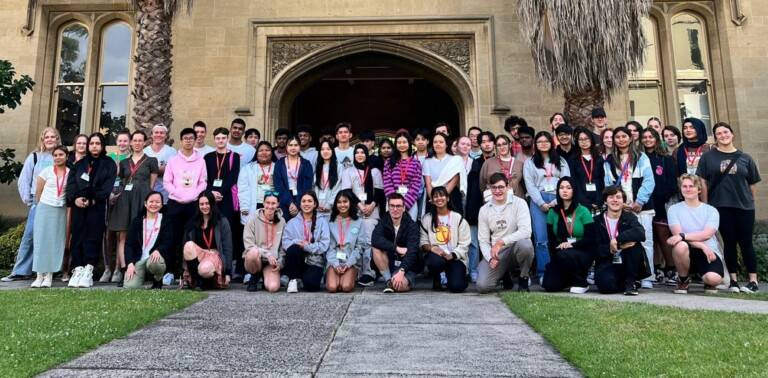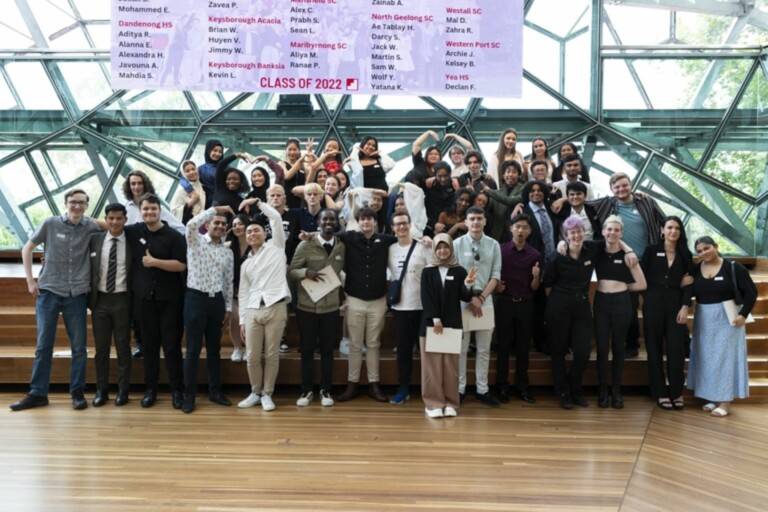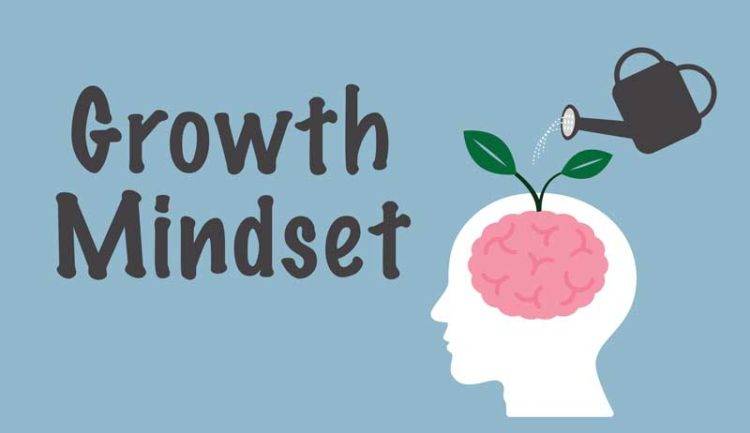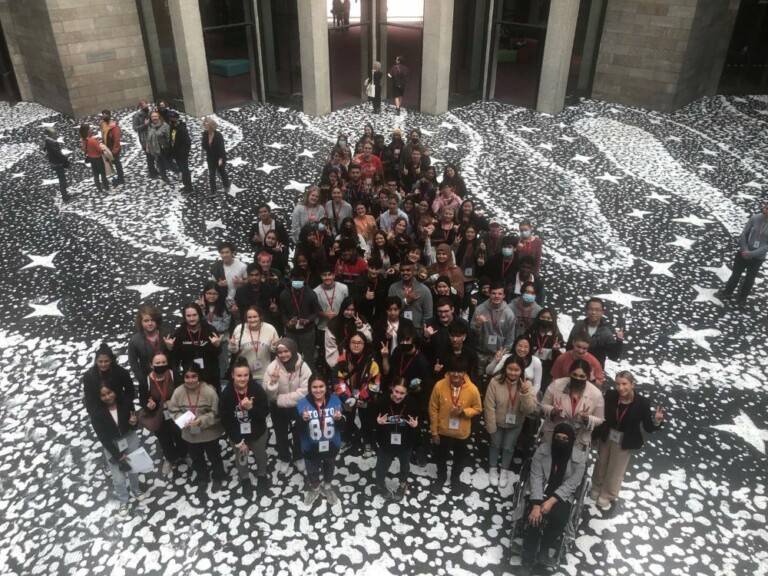Belonging
– Dr Elizabeth Hartnell-Young
Belonging is a fundamental human need, coming just above the basic needs of food/shelter and safety in Maslow’s famous hierarchy of needs Maslow (1943). In a time when tempestuous climatic change creates uncertainty and the COVID 19 pandemic exacerbates loneliness and social isolation, meaningful connections that lead to a sense of belonging are increasingly valued by all of us.
In her very readable book on the Psychology of Belonging, Dr Kelly Ann Allen of Monash University, says:
Many people relate a sense of belonging to feeling accepted, included, understood, welcomed, liked and appreciated… Belonging does not depend on the number of others or groups you surround yourself with. Rather, belonging is a perception or an evaluation of how you feel. This evaluation may relate to the quality of social connections, to their meaning, to a person’s satisfaction with them or even to the way someone feels towards a place or an event (Allen, 2021, p. 2).

A sense of belonging can also be associated with places, memories, objects, experiences or events. Nola Turner-Jensen, a Wiradjuri historian and consultant, has written about belonging in a helpful article on LinkedIn (Turner-Jensen, 2022). She also says:
Aboriginal people have always been orally taught that they are related to everything in their mother’s or fathers’ country. Right down to the tiniest flea. Each country was saturated in ancient language place names that have a meaning tied to the physiography, history, botany, physicality, and mythology (totemology) of where your mother, and all her mothers before her, was born. In my Wiradjuri people’s language we have over 75 different names for water. This story (name) of every waterway captured their purpose and behaviour, frozen in time. This was our education via stories, Kinship laws, language, and songs.
Belonging often begins in a family. But not all families make you feel accepted, understood, or appreciated. And even if you have numerous social networks, friends and family members, you can still feel lonely and like you do not belong. When Skyline people talk about the ‘Skyline Family’ they mean that they have found a welcoming place where they feel a connection with others of like mind. As the 2021 evaluation update found, of thirty alumni surveyed, 80% were still in touch with other Skyline students, 47% were in touch with Skyline staff and 27% were still in touch with a Companion Teacher.
‘Belonging’ is not the same as ‘fitting in’. Belonging doesn’t require us to change who we are; it requires us to be who we are, according to Professor Brené Brown (2010). Recently, Australian of the Year Grace Tame caused a stir when she scowled on meeting the Prime Minister, rather than smiling as was most likely expected. She was not fitting in, and in doing so, drew attention to her cause – child sexual abuse – for which she was awarded the honour (Bruce-Smith, 2022). A desire for uniqueness is common and may serve as a springboard for a sense of belonging through the development of self-identity/self-concept (Allen, 2021). This can result in leadership behaviour.
A sense of belonging can influence decision to leave home, take a job interstate or overseas. Volunteering can create a strong sense of belonging, wellbeing and leadership as Carlton (2015) found after the Christchurch earthquake in New Zealand, when youth of refugee background mobilised to assist devastated residents.
Loneliness
On the other hand, the other epidemic – loneliness – identified by Putnam (2000) in Bowling Alone, has led some countries to take action. The 2018 Australian Loneliness Report found than more than one in four Australians of all ages were lonely at some times. This impacted on their health through poor sleep, headaches, stomach complaints and respiratory infections (Abbott, Lim, Eres, Long, & Mathews, 2018).
Britain announced the world’s first minister for loneliness, Tracey Crouch, in 2018. When she was appointed, people came forward in appreciation, leading her to encourage both more talking about loneliness and providing a framework to support the lonely (Purcell, 2021). Confronted by a rise in suicides amid the COVID-19 pandemic, Japan has also appointed its first Minister for Loneliness, Tetsushi Sakamoto, to carry out activities to prevent social loneliness and isolation and to protect ties between people.
Technology and Belonging
Is technology helping or hindering our sense of belonging? While acknowledging that the Internet provides connection for physically distant people, Putnam raised concerns about the quality of virtual relationships. Skyline’s Theory of Change points out that activities are designed to encourage belonging, and the past two years have thrown up challenges that could only be met through virtual connections.
In 2020, Skyline students were about to enjoy a Masterclass at the National Gallery of Victoria when COVID 19 disrupted plans. Ironically, the exhibitions included KAWS ‘Companionship in the age of Loneliness’. Swiftly, the event was shifted online, and students reflected on the artworks, created some of their own in groups and genuinely attempted to connect online instead of coming together in the gallery. One student wrote about ‘companionship’ in the online chat: ‘without it, I feel empty’. Read more in my blog post about the event
Allen (2021) recommends using social media to discuss belonging, to raise public awareness about the importance of belonging and the damaging effects of rejection on people throughout their lives. She suggests this may even assist suicide prevention.
The importance of school relationships
When students do not feel a sense of belonging to school, they can be attracted to other groups, gangs, theories or cults. Sadly, recent research has shown that a low sense of attachment to school is a common connecting factor linking school shootings, suicidal behaviour in adolescence and youth radicalisation (Allen, 2021). Fortunately, Allen has found that the strength of student–teacher relationships is a powerful predictor of a sense of belonging to school. Meaningful and positive relationships with classmates and teachers are important. When students see challenges as normal difficulties that can be overcome – a growth mindset – they stay more engaged in school.
Considering others
A sense of belonging can be enhanced by thinking of others as well as yourself. I remember visiting a primary school in Victoria that had the motto ‘Consider Others’ and I recommend the allegory of the long spoons to you (Allegory of the long spoons – Wikipedia). Simply put, in heaven we feed each other.
References
- Abbott, J., Lim, M., Eres, R., Long, K., & Mathews, R. (2018). The Impact of Loneliness on the Health and Wellbeing of Australians. InPsych, 40(6). Retrieved from https://psychology.org.au/for-members/publications/inpsych/2018/december-issue-6/the-impact-of-loneliness-on-the-health-and-wellbei
- Allen, K. A. (2021). The Psychology of Belonging. Abingdon, Oxon: Routledge.
- Brown, B. (2010). The Gifts of Imperfection: Let Go of Who You Think You’re Supposed to Be and Embrace Who You Are Center City, MN: Hazelden.
- Bruce-Smith, A. (2022). Grace Tame doesn’t owe you a smile. Marie Claire. Retrieved from https://www.marieclaire.com.au/grace-tame-smile-scott-morrison
- Carlton, S. (2015). Connecting, belonging: Volunteering, wellbeing and leadership among refugee youth. International Journal of Disaster Risk Reduction, 13, 342-349.
- Maslow, A. (1943). A theory of human motivation. Psychological Review, 50, 370-396.
- Purcell, C. (2021). Why we need a minister for loneliness. Sydney Morning Herald. Retrieved from Why we need a minister for loneliness (smh.com.au)
- Putnam, R. (2000). Bowling Alone: The Collapse and Revival of American Community. New York: Simon and Schuster.
- Turner-Jensen, N. (2022). How Ancient Aboriginal People Define Connection to Country. Retrieved from https://www.linkedin.com/feed/update/urn:li:activity:6891515832061825024/

